Latino Pride Festival transforms downtown Phoenix
Dramatic makeup, colorful costumes, sparkly tights and voluminous wigs. Drag artists showcased these and more during their unforgettable performances at the Fifth Annual Latino Pride Festival, held on Oct. 4 at Phoenix's Historic Heritage Park.
With each song and choreography, their presence in downtown Phoenix transformed the stage into a space of celebration and representation, where Mexican music, Latine identity and the diversity of the LGBTQ+ community intertwined to create a rhythm of inclusion, joy and resilience.
“Having this type of environment, this space — to be able to allow folks to come out and celebrate not only their culture but just the fact that they're proud,” said Steve Gallardo, Maricopa County Supervisor for District 5 and the event's leading organizer, in an interview with CALÓ News. “They're proud of who they are and who they love and that's what's so great about it.”
The festival held greater significance than in previous years, providing a platform to celebrate a culture and identity that are constantly under scrutiny by the current presidential administration.

Jimena Cavalli, crowned Miss Latina Pride 2025, performs during the Latino Pride Festival on Oct. 4, 2025, in downtown Phoenix. (Nicole Macías Garibay/CALÓ News)
'They don't have to beg to be on stage'
The Latino Pride Alliance, co-founded by Gallardo, which brought the festival to life, did so not only to celebrate identity and culture, but also to allow Latina drag queens to shine without limits.
“Many of these Latina drag [queens] will tell me, ‘Steve, when I go to other prides, they only give us two minutes, three minutes,’” Gallardo said. “You know what? They got a whole stage for themselves to perform. There is no time limit, and that's what this is all about: to be able to highlight their own artistry. They don't have to beg to be on stage.”
For Ruby Reynolds, the official host since 2018, it was an honor to be part of an event that provides a platform from which Latina drag queens have been excluded at other LGBTQ+ Pride festivals.
“For many years, Latinas weren't welcome at Pride events…and little by little they've let us in, but now we have our own events,” Reynolds said.
In addition to demonstrating that Latine culture enriches the diversity of the LGBTQ+ community, the festival offered drag queens a space to practice their art and bring a smile to the people they share it with.
“Drag is a very fascinating art,” said Jimena Cavalli, who took the stage as the crowned Miss Latina Pride 2025 to dance to the rhythm of Selena Quintanilla. “You learn about yourself. You learn about your artistic ability.”
Other musical acts at the event — including La Sonora Dinamita, a pioneering cumbia group; Pistolas de Oro, charros with seductive choreography and Wendy Guevara, a transgender woman who rose to fame after winning the reality show “La Casa de los Famosos México” — demonstrated that Latine culture and pride can go hand in hand.
Guevara was the most anticipated performer of the night, with dozens of fans and followers waiting in line to meet her and take photos with her. She said that being received with so much love from the community in Phoenix is a blessing.
Despite the warmth with which the community greeted her, Guevara emphasized that true inclusion of trans people remains a distant goal, but not impossible to achieve.
“I feel like a reflection of the community because many of us across the LGBT spectrum have many things in common,” Guevara told CALÓ News. “Especially when society and people are sometimes so harsh and cruel to us.”

Wendy Guevara, Mexican influencer and champion of trans and LGBTQIA rights, performs at the 5th Annual Latino Pride Festival on Oct. 4, 2025, l in Phoenix, Arizona. (Yamileth Cabrera/CALÓ News)
Existing in a challenging political climate
The exclusion of Latine people from the LGBTQ+ community has historically occurred. In the 1970s, when the first LGBTQ+ Pride marches were held, activist Sylvia Rivera, who played a key role during the Stonewall protests, was discriminated against for her Latina and transgender identity.
In Phoenix, the silencing of Latine voices within the LGBTQ+ community has been denounced for years. In 2017, the Trans Queer Pueblo collective protested during the Phoenix Pride Parade, as organizers collaborated with police, which, according to the organization, limited the participation of undocumented members of the LGBTQ+ community for fear of being deported.
Considering the needs of LGBTQ+ Latinos—who face challenges such as immigration status, criminalization based on their skin color and lack of access to healthcare—is one of the goals of the Latino Pride Alliance. That's why they selected local organizations such as Adelante Healthcare, the Phoenix Office of Transparency and Accountability, and Trans Queer Pueblo to offer services to attendees.
Nationwide, the goal of reducing healthcare inequalities within the LGBTQ+ community has been severely undermined.
In July, the administration ordered the closure of the hotline that provided support to more than 1.3 million LGBTQ+ youth at risk of suicide since 2022. Additionally, federal funding for community health research, including studies on HIV, cancer and mental health, was suspended.
Recently, President Donald Trump has revoked federal protections against discrimination against employees based on their gender identity and sexual orientation, sought to restrict gender affirmation for trans youth and also banned trans women from participating in women's Olympic sports.

Trans Queer Pueblo's table offers informational pamphlets for the migrant community inside Heritage Square during the Latino Pride Festival on Oct. 4, 2025, in downtown Phoenix. (Nicole Macías Garibay/CALÓ News)
Many in the community are also vulnerable to the mass deportation machine that Trump has set into motion, endangering the lives of immigrants if returned to their countries of origin, where they are punished and discriminated against for their gender identity and sexual orientation.
“With everything that's happening right now, it's important for us to speak out, to take action, to let people know we're here,” Reynolds said. “We're standing up for our brothers and sisters.”
Even in the face of decisions and policies from Washington and the White House, Gallardo affirmed that the festival, held during Hispanic Heritage Month, stood as a symbol of unity, offering a space where Latine culture and LGBTQ+ identities could be celebrated.
Nicole Macias Garibay is a transborder storyteller and bilingual journalist from the U.S.-Mexico border. Her upbringing crossing the border on the daily fuels her drive to report on migration, Latino culture and the Hispanic community. She wrote for La Voz-The Arizona Republic, interned at Telemundo Arizona and launched VOCES, a bilingual magazine dedicated to telling stories para la comunidad, por la comunidad.

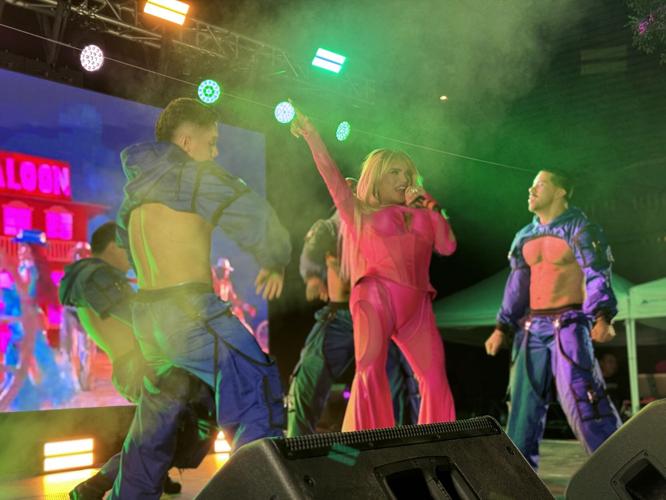
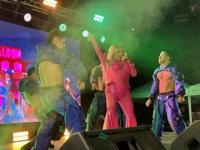

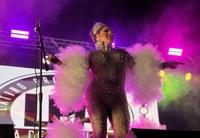
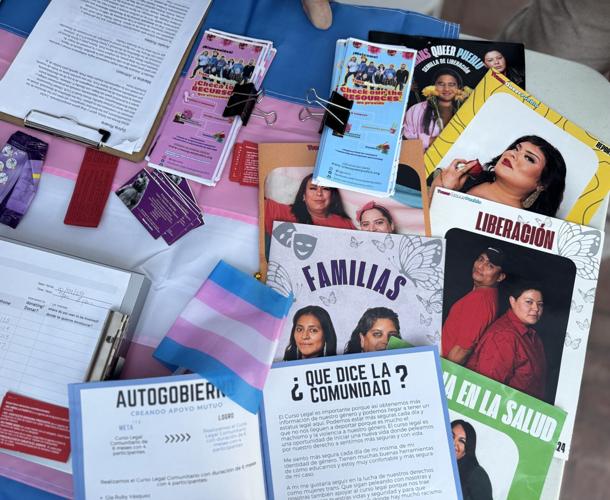
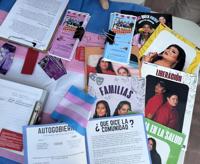
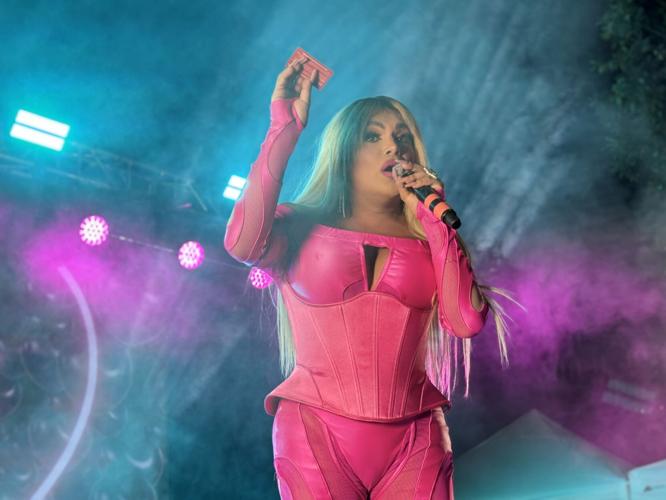

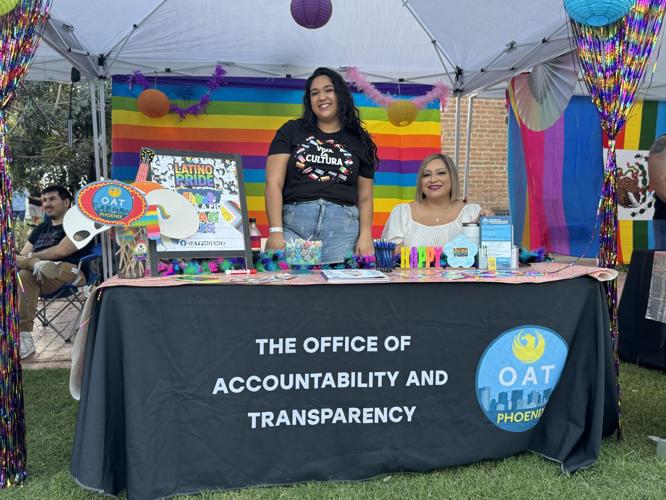
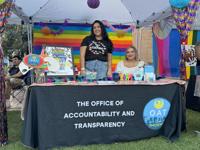
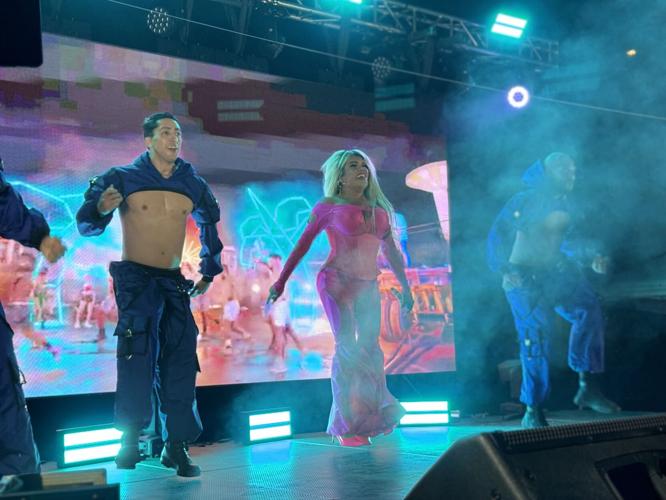
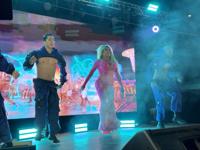
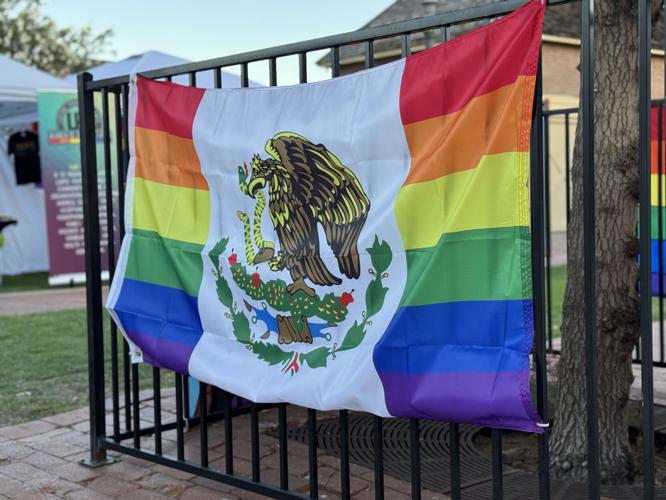
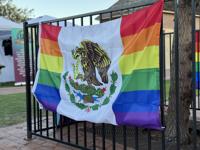
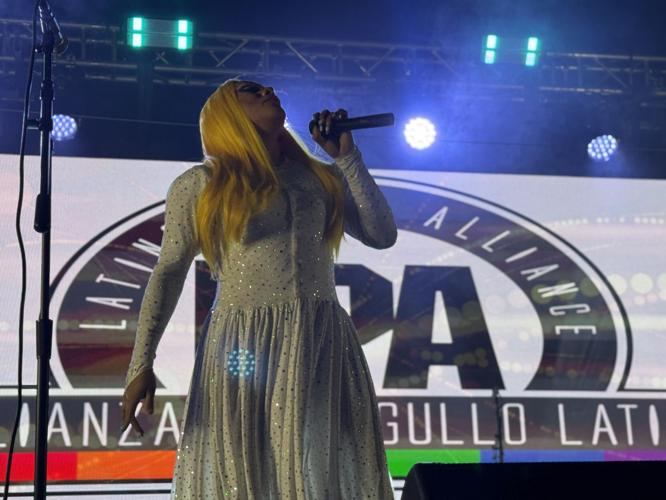

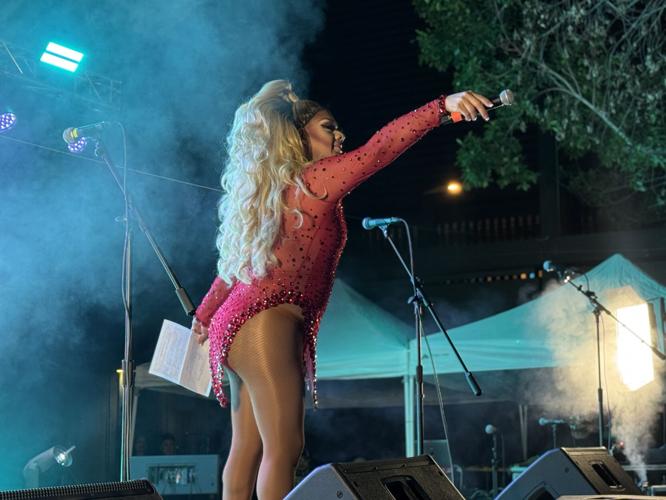
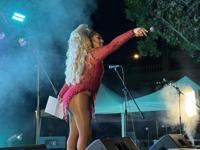




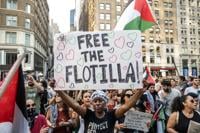

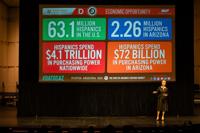

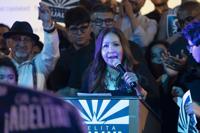



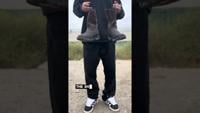
(0) comments
Welcome to the discussion.
Log In
Keep it Clean. Please avoid obscene, vulgar, lewd, racist or sexually-oriented language.
PLEASE TURN OFF YOUR CAPS LOCK.
Don't Threaten. Threats of harming another person will not be tolerated.
Be Truthful. Don't knowingly lie about anyone or anything.
Be Nice. No racism, sexism or any sort of -ism that is degrading to another person.
Be Proactive. Use the 'Report' link on each comment to let us know of abusive posts.
Share with Us. We'd love to hear eyewitness accounts, the history behind an article.